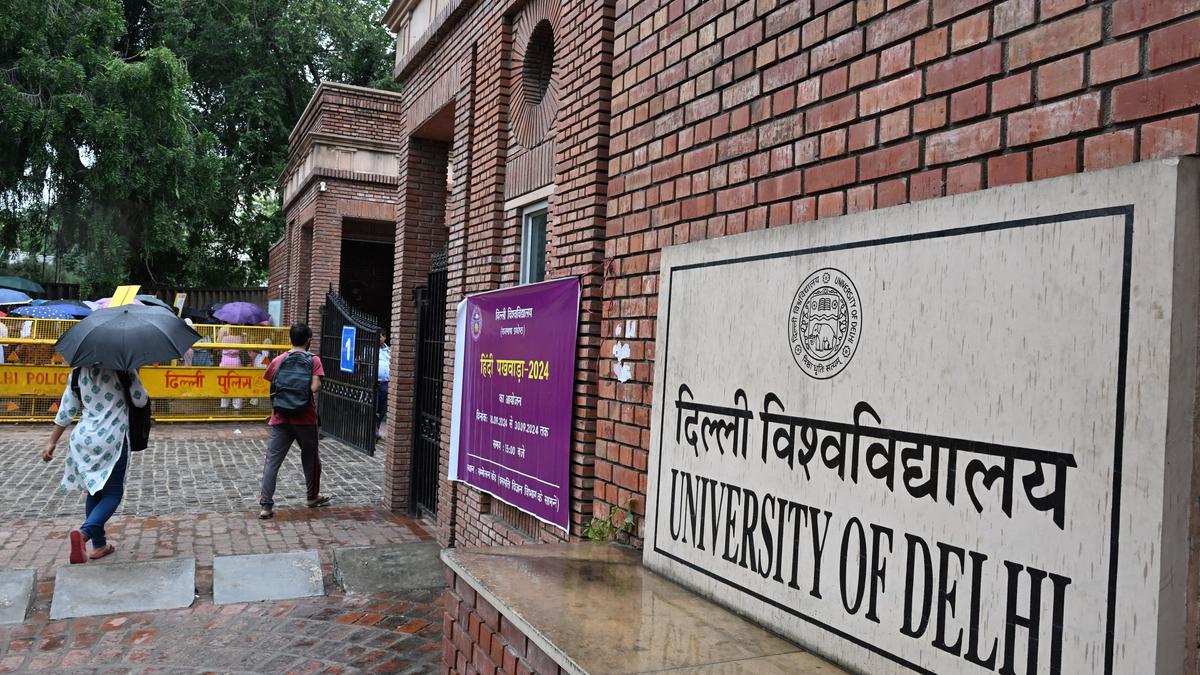
DU panel proposes changes to paper on Delhi’s history
The Hindu
Proposed revisions to Delhi University history paper spark controversy over changes to syllabus content and focus on ancient history.
Delhi University (DU)‘s Committee of Courses has proposed amendments to a history paper titled ‘Delhi Through the Ages: the Making of its Early Modern History’, which will be tabled for approval at the Academic Council (AC) meeting on Thursday, said sources. If approved, it will be the third revision to the paper since 2016.
The paper is a general elective taught in the first semester. A professor said the proposed revision includes the removal of an important text by renowned historian Professor Irfan Habib, ‘Economic History of the Delhi Sultanate – an Essay in Interpretation’, which explains the economic background of medieval Delhi.
A university official said that only “minor additions” and suggested readings have been proposed. A member of the Committee of Courses, which proposes changes in the syllabi taught at the university, said the revisions are aimed at placing as much emphasis on the ancient history of Delhi as there is on medieval and modern history.
In the earlier versions, the first unit of the paper was titled ‘The environmental setting; prehistoric and protohistoric sites; Purana Qila: archaeology and legend’.
The proposal suggests that its name be changed to ‘Delhi’s Ancient Past up to 12th Century’, with Purana Qila being replaced with ‘Indraprastha-Hastinapur’. The unit throws light on the archaeological findings related to Purana Qila, where excavations have taken place to locate Indraprastha, the city of the Pandavas mentioned in the Mahabharata. The unit was renamed in 2019 and again in 2022.
Maya John, AC member and Assistant Professor of History at DU’s Jesus and Mary College, termed the proposed revisions “disturbing”.
Deepankar, Assistant Professor of History at Atma Ram Sanatan Dharma College and member of the Committee of Courses, said, “Purana Qila has not been removed entirely and is being taught elsewhere in the course.”











